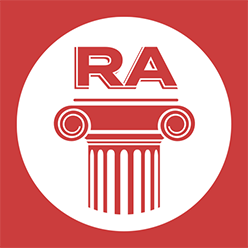We are quickly approaching the two-year mark for “two weeks to flatten the curve”. People around the world have become vocally suspicious of their governments’ motivations. Christians in particular have been questioning how to apply their obligations set forth in the book of Romans chapter 13. Do we continue to humbly submit to the directions and decrees of our government as an act of obedience to God? Do we sit back and take comfort that the Almighty will punish the powers and principalities that exercise unjust authority over His people? Or do we take up the cause of speaking out and actively disobeying the fiats of governmental officials with a history of hostility towards the proclamations and precepts of the source of their own authority?
Romans 13 begins with a very clear directive: “Every person is to be in subjection to the governing authorities.”1 Whether the verb hypotassesthō is translated using “is to be” or “let”, the word is in the imperative mood; and, therefore, it is a command we are obligated to heed. But there is a prerequisite for the repositories of power that qualifies this ordinance in a very necessary way:
For rulers are not a cause of fear for good behavior, but for evil.2
Governments are to be respecters of the good, defenders of the righteous. They are to be arbiters of the Laws of God on earth. And as long as they are in subjugation to God’s laws, we have no excuse for not being in subjugation to their judgments. What then is our obligation when the authorities defy what God has ordained as good? The most relevant example comes from Daniel chapter 3 when Shadrach, Meshach and Abed-nego refuse to obey a clearly-worded command from a duly-appointed authority. At risk of fiery death, they refused to kneel down before a golden idol. They did not actively and openly revolt against king Nebuchadnezzar; they didn’t change their normal behavior in any way. They committed an act of what modern times calls noncompliance or civil disobedience.
For the men in Daniel chapter 3, the line drawn that could not be crossed was obvious. Far us modern believers, the line between obeying the ministers of health and welfare as an act of fealty to God and refusing to violate our bodily autonomy at the behest of an untrustworthy authority is far and away not as distinct as Nebuchadnezzar’s hasty proclamation. As such, there must be something practical that can help us make Godly decisions when the available information is unclear or completely absent. The apostle Paul who admonished us to obey the authorities as as a means of living life without fear also pressed the issue as a matter of conscience. We are not only called to live peacefully in community with other people, we are also called to live peacefully with ourselves. When all is said done, the state of our consciences, as a barometer of our relationship with God, will be the feather that tips the scales of indecision to one side or another.

